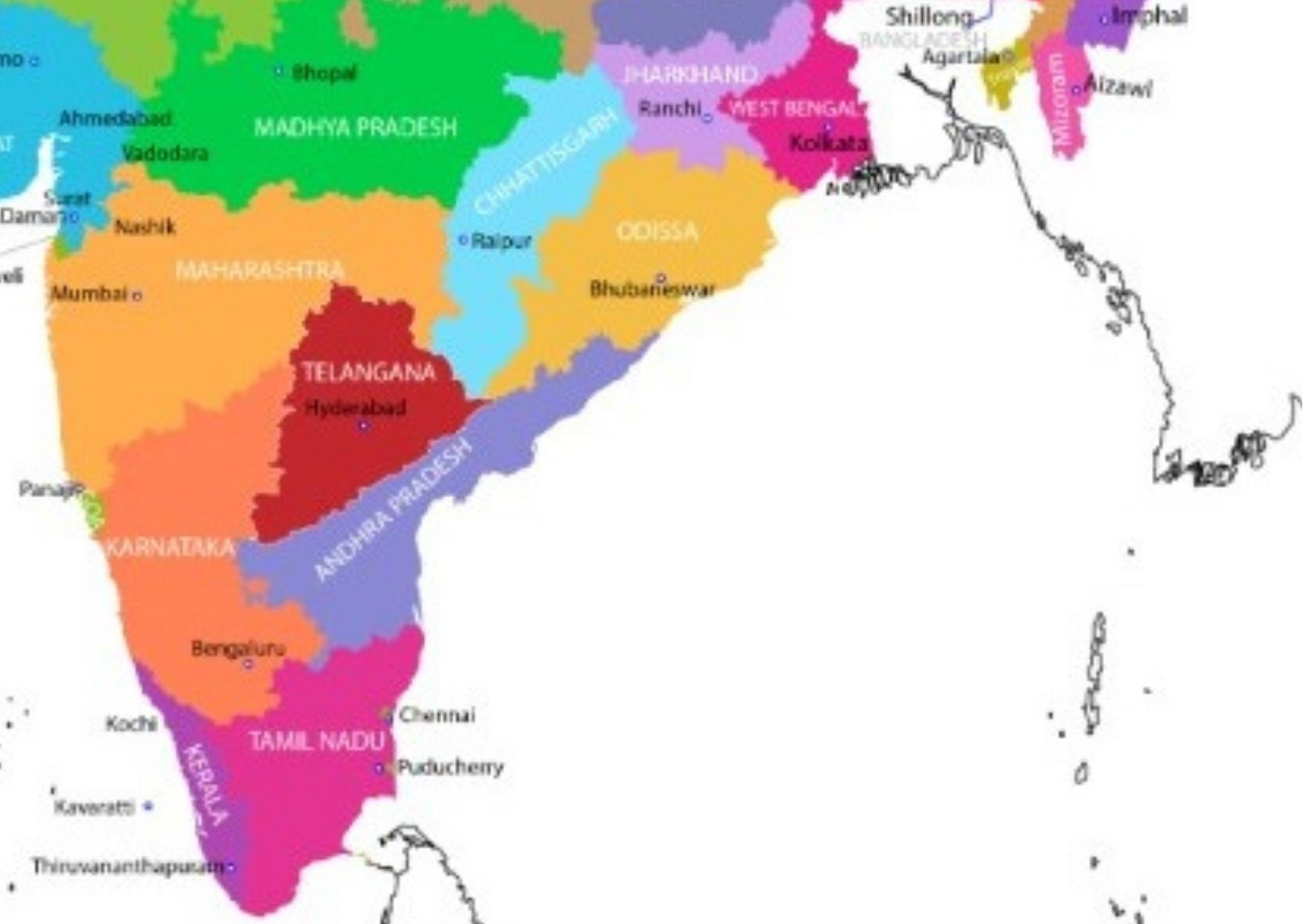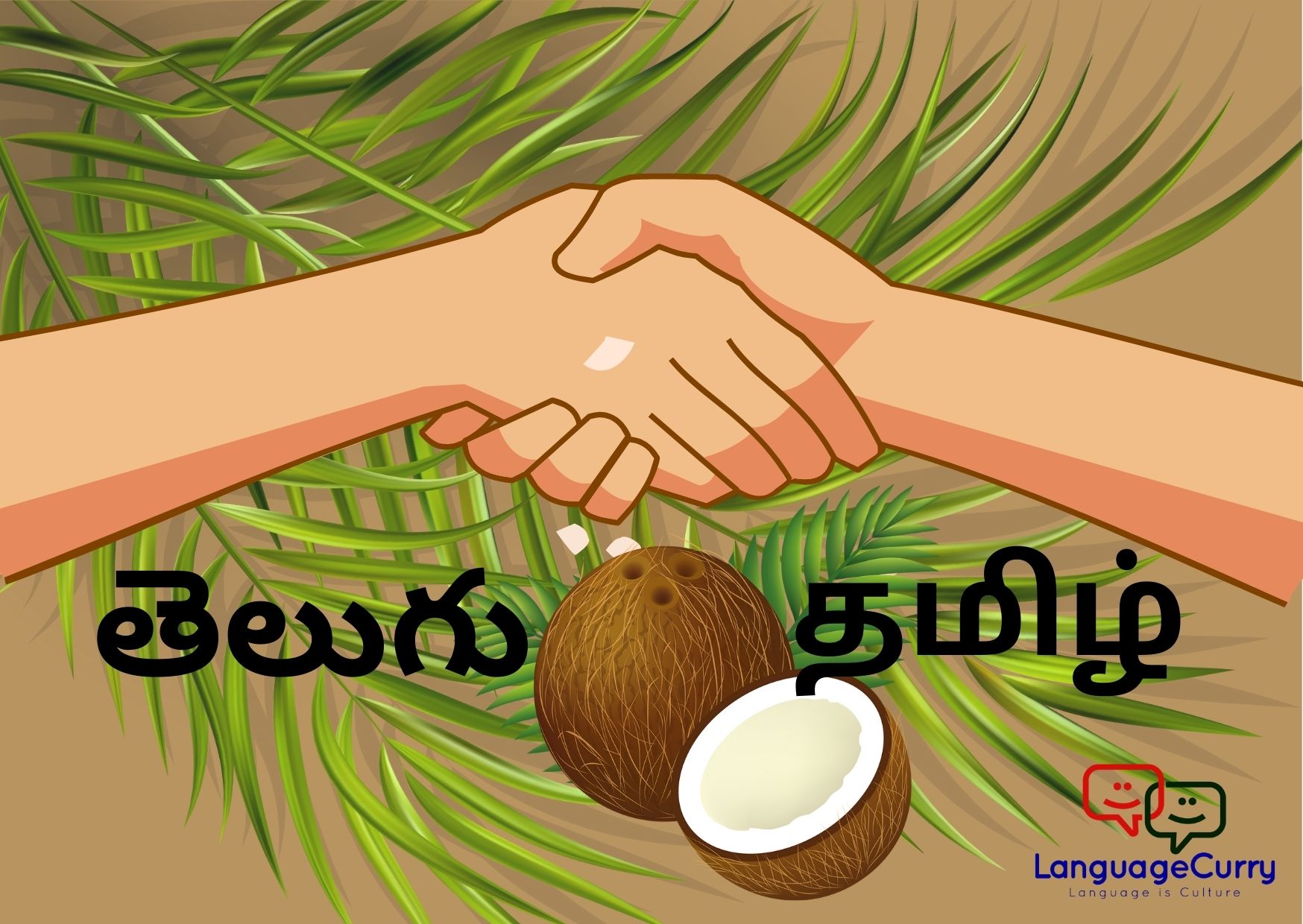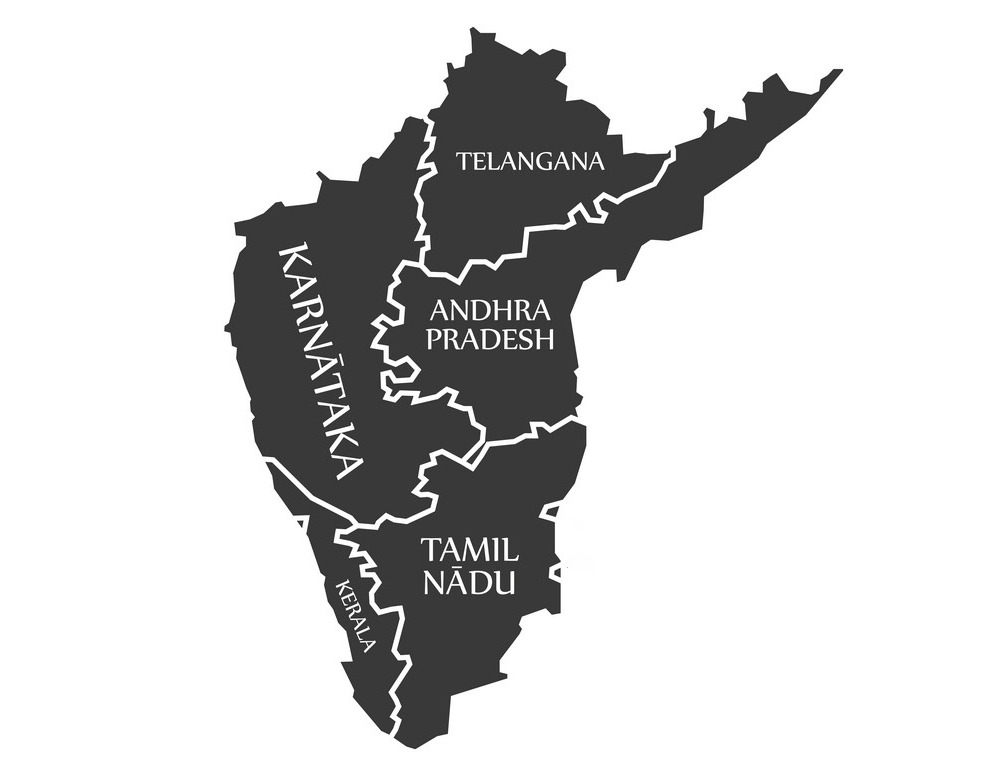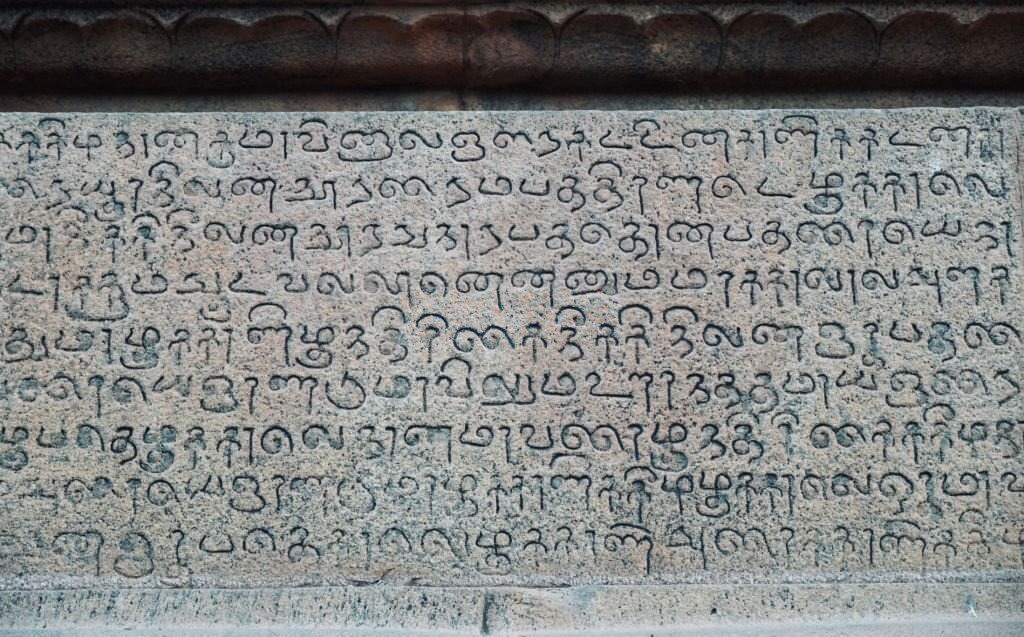Is learning Telugu easy for a Tamilian and vice-versa?
With the knowledge of neighboring languages, you become a member not a neighbour.
Ever wondered how are Telugu and Tamil mutually intelligible? Is it perhaps as both Telugu and Tamil are descendant sisters of the Dravidian language family?

Have you ever thought 'How hard would it be to learn the Telugu language being a Tamilian or vice-versa'.Telugu and Tamil are like sisters as they are descended from an ancient Dravidian dialect. Through these years the journey and connection between these two languages are beyond our imagination. Chennai, The capital of Tamilnadu was taken from the word 'Chennapatnam'. Which is named after a Telugu ruler 'Chennappa Nayakudu'.[1][2] Whereas the most revered shrines in India, Tirumala Tirupati in Andhra Pradesh has Tamil inscriptions on the temple walls[3]. Bhajans,keerthanas, and chantings of gods almost sounded similar in Andhra Pradesh & Tamilnadu.
There is innumerable evidence in literature & vocabulary, Which convinces us to a point that these two languages are connected so deeply and flourished with each other. Until a separate state formed for Telugu people, Telugu and Tamil speaking people stayed together as a Madras presidency under British rule. Back then it was common to Converse in both languages within the region.

Probably, The charm of conversing in these two languages has almost vanished. Apparently, the culture of conversing in two languages is sustained in the border areas of both states.
Post-independence, We as Indians focused on English with the influence of westernization. Currently, we are on the verge of globalization, and now as everyone is looking for a path to coming back to our roots. It’s high time to learn our neighboring languages to overcome geographical barriers and communicate ideas effectively-being swadeshi.
'Is it easy to learn Telugu being a Tamilian or vice-versa'?
It is recommended to learn both languages not just because of the neighborhood. but because of the mutual intelligibility of these two languages. For the sake of learning, let's just ignore the history and origin of these languages. Though written representations look quite different but inherently share the similarity between them. Languages have evolved over the years and if we try to establish concrete relationships among them it would become easy to develop linguistic treasure.

Coming to sentence formation, both these languages follow similar sentence structures. As lately stated, Telugu and Tamil are Dravidian languages. A significant amount of vocabulary holds some sort of sounding swap keeping the original phonetics base as it is. Subsequently, the sentence structure is the same for active voice conversation is SOV (Subject-Object-Verb).
However, Passive sentence structure is a bit complicated to compare. Let’s see an example with active voice sentence formation. Though both languages allow free sentence formation, it's the active voice that is normally used.
Language: Subject - Object-Verb
English: I will open the box
Telugu: Nēnu peṭṭe-nu terustānu
Tamil:Nān - peṭṭi-yai - tiṟa-pp-ēn
With phonetic similarities in pronunciation, difficulty in learning the languages disappear. As generic subject and object words used are few and the phonetics in both languages are almost similar. let's have a look at the list below.
Subject & Objects:
English - Telugu-Tamil
I- Nēnu - Nān
You- Nuvvu-Nī
He - Athanu - Avan
She - Aame - Aval
It - Adhi- Adhu
Me - Nannu -Ennai
Myself - Nene -Nane
We-Memu -Nankal
They - Vallu-Avargal
Them- Vatini- Avarkalaku
Him- ataniki-avanuku
Her-āmeku- avaluku
By observing the above list, it is evident. The root for the word is the same and just the sounds are being changed. Try to look at more of these sound shifts, while learning the vocabulary. This enables us to guess and grasp the language quickly.
Further, conversations are merely questions and answers filled with some anecdotes. In any language that exists, the generic question words play a critical part in a conversation. Like subject and object, let’s see the similarities in the question words below.
English- Telugu-Tamil
What - Yenti - Yenna
Which - Yedhi- Yendha
Who- Yevaru-Yaru
Where- Yekkada-Yenge
Why - Yenduku-Yen
When -Yeppudu– Yeppolutu
How - Yela-Yeppadi
Whose –Yevaridhi-Yarudaiya
Apparently, there is no explanation needed for the above list. However, generic vocabulary for conversion is also similar, for instance, check the following.
English-Telugu-Tamil
Day- Dinam/Roju- Dinam
week-Vaaram-vaaram
Month-Masam/Nela-Masam
Year-Varsham/Samvathsaram-Varsham
Okay- sare- sari
Yes- Avunu - Aama
Climb - yekku - yeru
Still - Iṅkā -Innum
Even the numbers and relationships are also almost similar except for a few minor sounding differences. Hence, the similarity between these two languages makes it easy to learn Tamil and Telugu for a Telugite and Tamilian respectively.
Earlier in the article, subject and object were discussed but the verb forms are not mentioned and of course, we need to consider the fact that there will be no correlation for some of the vocabulary required. You can guess and understand what that word means from the context of speech. However, confirmation from a known person is what we seek. That's where the app 'Language curry' appears as a replacement for a person. It is the best app to learn Telugu online and other Indian languages. As rest of the stuff shall come only if you constantly listen and practice. Learn Telugu in 30 days using the app. There are verb forms that are similar sounding, however, the same can be found on your own by learning and comparing yourself using the Language Curry app.
[1] Etymology: https://en.wikipedia.org/wiki/Chennai
[3] Epigraphical records: https://en.wikipedia.org/wiki/History_of_Tirumala_Venkateswara_Temple



